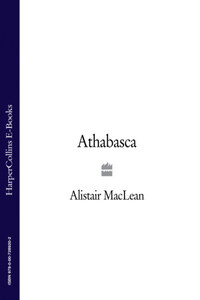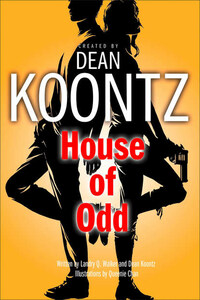Harper An imprint of HarperCollinsPublishers Ltd. 1 London Bridge Street London SE1 9GF
www.harpercollins.co.uk
First published in Great Britain by William Collins Sons & Co. Ltd 1970 then in paperback by Fontana 1972
Copyright © Harper collins Publishers 1970
Alistair MacLean asserts the moral right to be identified as the author of this work
A catalogue record for this book is available from the British Library
All rights reserved under International and Pan-American Copyright Conventions. By payment of the required fees, you have been granted the non-exclusive, non-transferable right to access and read the text of this ebook on-screen. No part of this text may be reproduced, transmitted, down-loaded, decompiled, reverse engineered, or stored in or introduced into any information storage and retrieval system, in any form or by any means, whether electronic or mechanical, now known or hereinafter invented, without the express written permission of HarperCollins ebooks
This book is sold subject to the condition that it shall not, by way of trade or otherwise, be lent, re-sold, hired out or otherwise circulated without the publisher’s prior consent in any form of binding or cover other than that in which it is published and without a similar condition including this condition being imposed on the subsequent purchaser
HarperCollinsPublishers has made every reasonable effort to ensure that any picture content and written content in this ebook has been included or removed in accordance with the contractual and technological constraints in operation at the time of publication
Source ISBN: 9780006157489
Ebook Edition © JANUARY 2009 ISBN: 9780007289240 Version: 2018-10-30
They had come a long way, those gypsies encamped for their evening meal on the dusty greensward by the winding mountain road in Provence. From Transylvania they had come, from the pustas of Hungary, from the High Tatra of Czechoslovakia, from the Iron Gate, even from as far away as the gleaming Rumanian beaches washed by the waters of the Black Sea. A long journey, hot and stifling and endlessly, monotonously repetitive across the already baking plains of Central Europe or slow and difficult and exasperating and occasionally dangerous in the traversing of the great ranges of mountains that had lain in their way. Above all, one would have thought, even for those nomadic travellers parexcellence, a tiring journey.
No traces of any such tiredness could be seen in the faces of the gypsies, men, women and children all dressed in their traditional finery, who sat or squatted in a rough semi-circle round two glowing coke braziers, listening in quietly absorbed melancholy to the hauntingly soft and nostalgic tsigane music of the Hungarian steppes. For this apparent lack of any trace of exhaustion there could have been a number of reasons: as the very large, modern, immaculately finished and luxuriously equipped caravans indicated, the gypsies of today travel in a degree of comfort unknown to their forebears who roamed Europe in the horse-drawn, garishly-painted and fiendishly uncomfortable covered-wagon caravans of yesteryear: they were looking forward that night to the certainty of replenishing coffers sadly depleted by their long haul across Europe – in anticipation of this they had already changed from their customary drab travelling clothes: only three days remained until the end of their pilgrimage, for pilgrimage this was: or perhaps they just had remarkable powers of recuperation. Whatever the reason, their faces reflected no signs of weariness, only gentle pleasure and bitter-sweet memories of faraway homes and days gone by.
But one man there was among them whose expression – or lack of it – would have indicated to even the most obtusely unobservant that, for the moment at least, his lack of musical appreciation was total and his thoughts and intentions strictly confined to the present. His name was Czerda and he was sitting on the top of the steps of his caravan, apart from and behind the others, a half-seen shadow on the edge of darkness. Leader of the gypsies and hailing from some unpronounceable village in the delta of the Danube, Czerda was of middle years, lean, tall and powerfully built, with about him that curiously relaxed but instantly identifiable stillness of one who can immediately transform apparent inertia into explosive action. He was dressed all in black and had black hair, black eyes, black moustache and the face of a hawk. One hand, resting limply on his knee, held a long thin smouldering black cigar, the smoke wisping up into his eyes, but Czerda did not seem to notice or care.
His eyes were never still. Occasionally he glanced at his fellow-gypsies, but only briefly, casually, dismissively. Now and again he looked at the range of the Alpilles, their gaunt forbidding limestone crags sleeping palely in the brilliant moonlight under a star-dusted sky, but for the most part he glanced alternately left and right along the line of parked caravans. Then his eyes stopped roving, although no expression came to replace the habitual stillness of that face. Without haste he rose, descended the steps, ground his cigar into the earth and walked soundlessly to the end of the row of caravans.














